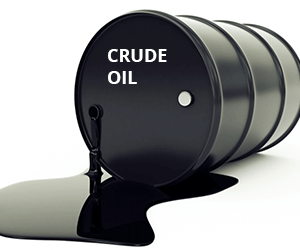
The Africa Sustainable Energy Centre (ASEC) is calling on the Government of Ghana to urgently revise its crude oil production strategies and royalty structures in a bid to strengthen the country’s petroleum revenue streams.
Speaking in an interview with Ghana’s United Television, Executive Director of ASEC, Ing. Justice Ohene-Akoto, warned that Ghana’s falling oil production could significantly impact national revenue in the coming years if not addressed.
“Our crude oil production has declined for the fifth consecutive year,” he stated.
“From 2023 to 2024, production fell by over 0.01%, and liftings dropped from 33 in 2023 to 32 in 2024 for Jubilee Field. Although royalties rose by approximately 9.3%, the decline in production diminishes overall revenue potential.”
Ing. Ohene-Akoto explained that Ghana’s oil revenue is shaped by three main factors: the royalty percentage rates across different oilfields, production volumes, and global crude oil prices.
While oil prices are influenced by external factors beyond the country’s control, he stressed that government policies can still play a key role.
“With global tensions pushing prices up from about US$64 per barrel at the beginning of the year to around US$80 today, revenue has increased. But oil prices are volatile and cannot be relied upon,” he explained.
“Government influence lies in boosting production and renegotiating royalties. These are areas where we can act.”
To address the situation, ASEC is urging government to take the following actions:
The centre recommended that the government convene technical and policy stakeholders to review and possibly raise the royalty rates applied to each offshore oilfield.
They further suggested the adoption of new strategies to boost production output, including improved field management and fresh investments in the Jubilee, TEN, and Sankofa-Gye Nyame fields.
Ing. Ohene-Akoto stated that while oil prices remain unpredictable, Ghana can still exercise fiscal control through policies that shape production and revenue distribution.
“We must recognise that while oil price fluctuations are uncontrollable, Ghana retains a measure of fiscal control through the policy levers we pull on production and royalties,” he said.
He added that if these recommendations are taken seriously and implemented within the next year, Ghana could see substantial gains in oil revenue by the end of 2025.
This, he said, would give the government greater financial flexibility to fund national priorities such as infrastructure, education, and health care.
DISCLAIMER: The Views, Comments, Opinions, Contributions and Statements made by Readers and Contributors on this platform do not necessarily represent the views or policy of Multimedia Group Limited.
DISCLAIMER: The Views, Comments, Opinions, Contributions and Statements made by Readers and Contributors on this platform do not necessarily represent the views or policy of Multimedia Group Limited.


